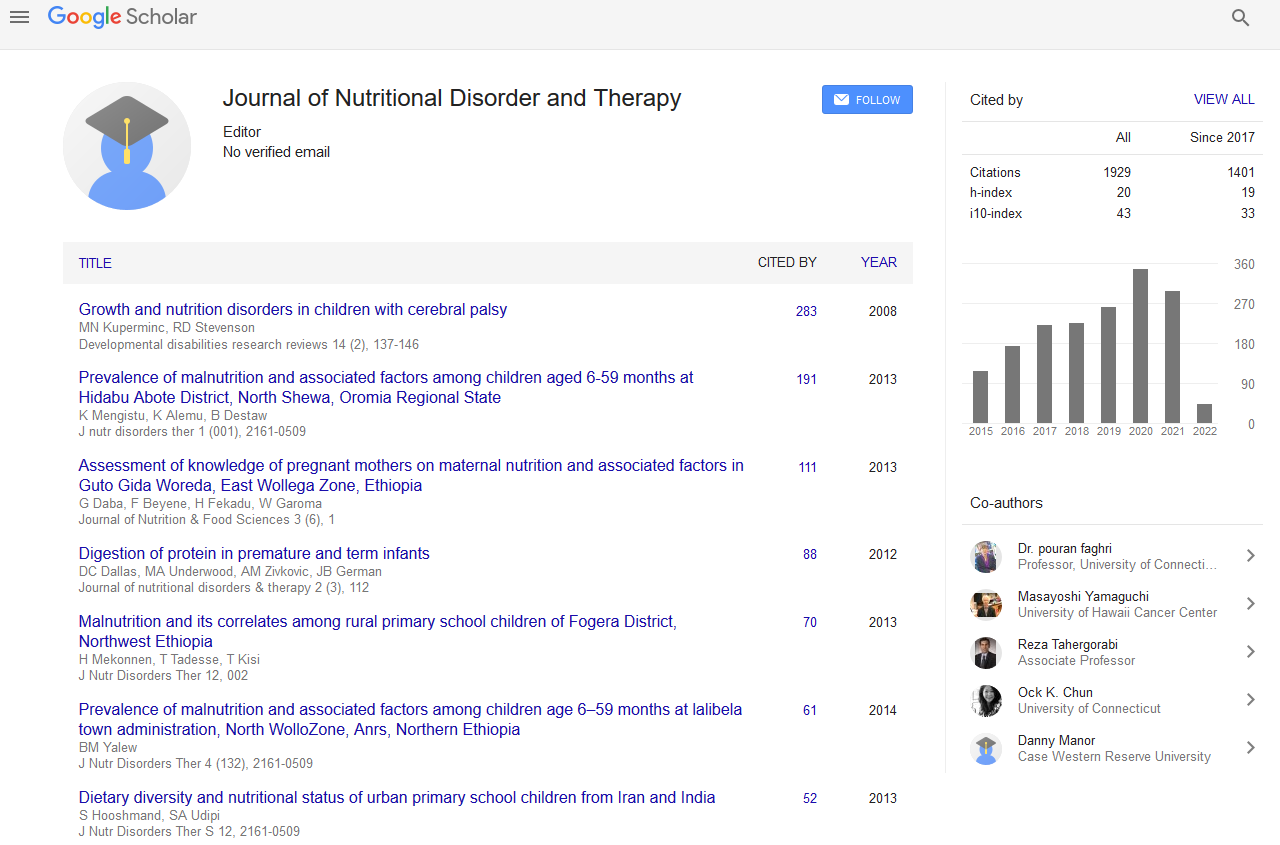Indexed In
- Open J Gate
- Genamics JournalSeek
- Academic Keys
- JournalTOCs
- Ulrich's Periodicals Directory
- RefSeek
- Hamdard University
- EBSCO A-Z
- OCLC- WorldCat
- Publons
- Geneva Foundation for Medical Education and Research
- Euro Pub
Useful Links
Share This Page
Journal Flyer

Open Access Journals
- Agri and Aquaculture
- Biochemistry
- Bioinformatics & Systems Biology
- Business & Management
- Chemistry
- Clinical Sciences
- Engineering
- Food & Nutrition
- General Science
- Genetics & Molecular Biology
- Immunology & Microbiology
- Medical Sciences
- Neuroscience & Psychology
- Nursing & Health Care
- Pharmaceutical Sciences
Abstract
Does Infants Feeding Contribute to Childhood Obesity?
Abdulmoein Al-Agha, Lubna Al-Nouri, Linah Faour and Baraah Tatwany
Objective: to establish an association between breastfeeding and its duration versus artificial feeding in relation to later on childhood obesity in Jeddah, Saudi Arabia.
Methods: A cross-sectional retrospective study was conducted in Jeddah, Saudi Arabia in 2014-2015 among children aged 2-12 years old. The participants were directed to an ambulatory clinic in King Abdulaziz Hospital where they had their anthropometric measurements taken. A total of 521 children (283 male and 238 female) provided complete data for the analysis.
Results: There was no significant association found between breastfeeding and a higher BMI or weight, however, there was a significant association between artificial feeding and a higher waist to hip ratio (P value= .030). Also, appetite had a P-value=0.0001, which signifies a relation between BF and appetite, 117 children (36.4%) were breastfed and they have decreased appetite, while 93 (29.0%) were breastfed and had an increased appetite. As for the duration, males who have been breastfed for a complete two years were 30 and who have been breastfeed for 18 months were 15, breastfed for one year were 33, but 72 males were breastfed for less than a year.
Conclusion: While there was no significant association found between breastfeeding and a higher BMI or weight, however, there was a significant association between artificial feeding and a higher waist to hip ratio; Which entails a higher risk for cardiopulmonary disease. Also, appetite control in breastfed infants had a significant effect, which indicates that there is an inverse relation between breastfeeding and appetite. As for the duration, prolonged duration of breastfeeding had a more protective effect on obesity.


